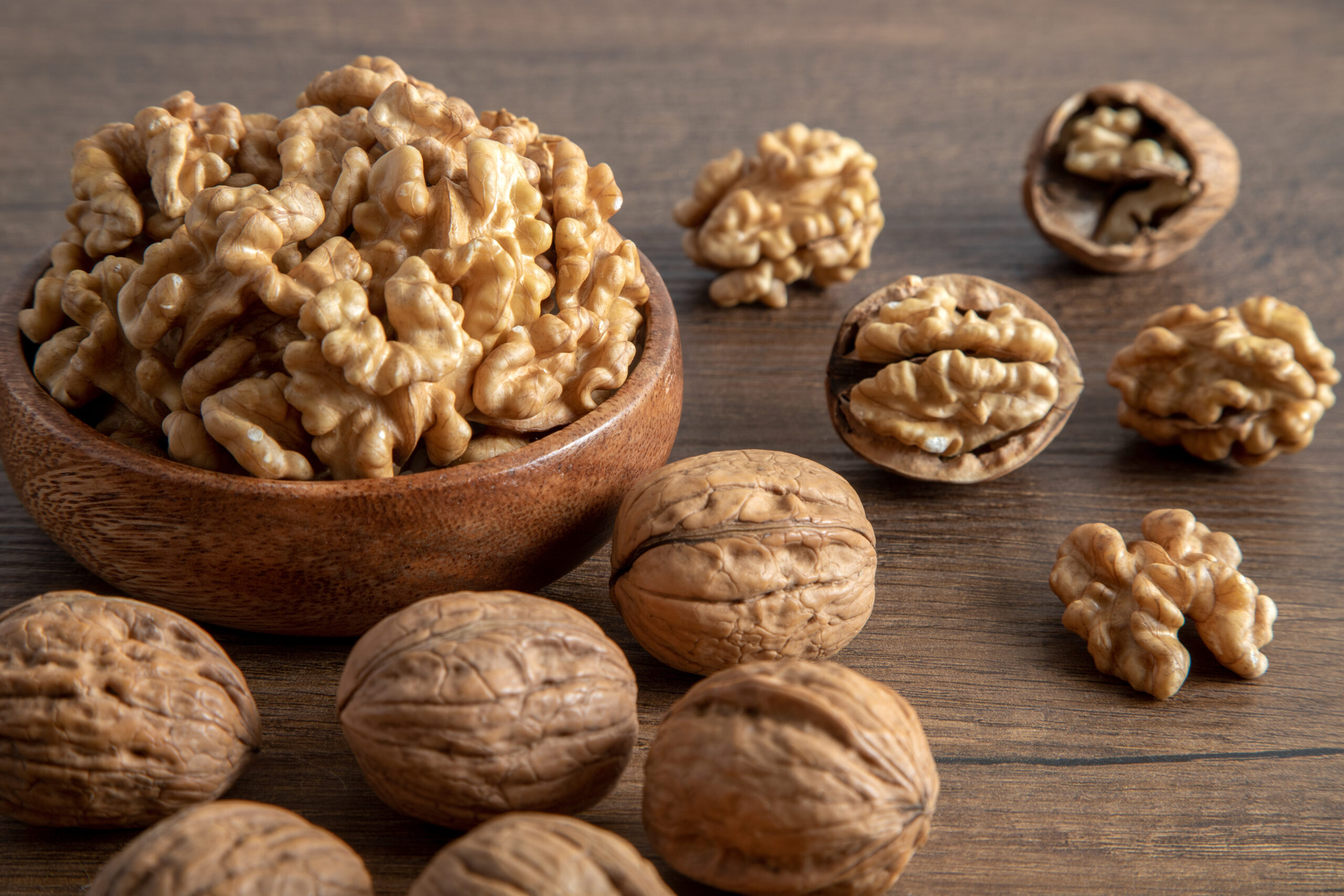Nature has a fascinating way of giving us hints about the benefits of certain foods. One such example is the walnut, a nut that closely resembles the human brain and is one of the best foods for cognitive health. Packed with essential nutrients, walnuts have been scientifically proven to support brain function, reduce the risk of neurodegenerative diseases, and enhance overall mental well-being.
In this article, we’ll explore why walnuts are a true superfood for mental health and how incorporating them into your diet can boost cognitive performance and so much more.
The Nutrient Profile of Walnuts
Walnuts (Juglans regia) are one of the most nutrient-dense nuts available. They are rich in healthy fats, proteins, vitamins, and minerals that play crucial roles in brain health. Here’s what makes walnuts stand out:
- Omega-3 Fatty Acids: Walnuts contain a high concentration of alpha-linolenic acid (ALA), a plant-based omega-3 fatty acid essential for brain function. ALA helps maintain the integrity of brain cell membranes and reduces inflammation, which is linked to cognitive decline.
- Antioxidants: These nuts contain antioxidants, including vitamin E and polyphenols, which help fight oxidative stress, a major contributor to brain aging and neurodegenerative diseases.
- B Vitamins: Walnuts provide several B vitamins, including folate, B6, and B12, which are crucial for neurotransmitter function and reducing symptoms of depression and anxiety.
- Magnesium: This mineral is key in regulating mood and cognition neurotransmitters. Low magnesium levels have been associated with an increased risk of depression and memory issues.
- Polyphenols: Found in walnut skins, polyphenols support gut-brain communication and have anti-inflammatory effects that protect brain cells from damage.
How Walnuts Improve Mental Health
Boosting Memory and Learning
Research suggests regular walnut consumption can improve cognitive function, particularly memory and learning abilities. A study published in the Journal of Nutrition, Health & Aging found that older adults who consumed walnuts regularly performed better on cognitive tests than those who didn’t. This effect is believed to be due to the omega-3 fatty acids and antioxidants that reduce oxidative stress and support brain plasticity.
Reducing the Risk of Alzheimer’s and Dementia
Walnuts have been extensively studied for their potential in preventing neurodegenerative diseases. A study at the University of California, Los Angeles (UCLA) found that people who consumed more walnuts had improved cognitive performance and a reduced risk of Alzheimer’s disease. The high levels of polyphenols and ALA in walnuts help prevent the buildup of amyloid plaques in the brain, which are linked to Alzheimer’s.
Enhancing Mood and Mental Well-Being
The nutrients in walnuts play a crucial role in mood regulation. Omega-3 fatty acids are known to reduce symptoms of depression and anxiety by supporting serotonin and dopamine production, the two neurotransmitters responsible for happiness and relaxation. Additionally, the magnesium in walnuts helps balance stress hormones, making them an excellent snack for reducing anxiety and promoting calmness.
Improving Focus and Reducing Brain Fog
Do you often experience brain fog or struggle to concentrate? Walnuts can help. The combination of omega-3s, antioxidants, and B vitamins works synergistically to improve blood flow to the brain, enhance neurotransmitter activity, and support mental clarity. Walnuts also help regulate blood sugar levels, preventing energy crashes contributing to sluggish thinking.
How to Incorporate Walnuts into Your Diet
Adding walnuts to your diet is easy and delicious. Here are some simple ways to enjoy this brain-boosting superfood:
- Eat Them Raw or Roasted: A handful of raw or lightly roasted walnuts makes a perfect snack.
- Add to Breakfast: Sprinkle chopped walnuts over oatmeal, yogurt, or smoothie bowls for added crunch and nutrition.
- Use in Baking: Add walnuts to homemade muffins, banana bread, or granola bars.
- Blend into Smoothies: Blend walnuts with bananas, almond milk, and a touch of cinnamon for a creamy, brain-boosting smoothie.
- Toss into Salads: Walnuts add texture and healthy fats to salads, especially when paired with leafy greens and a citrus dressing.
- Mix into Nut Butter: Blend walnuts into homemade nut butter and spread it on toast or fruit slices.
More Than Just a Tasty Snack
Walnuts are more than just a tasty snack, they are a powerhouse of nutrients that support brain health, memory, and emotional well-being. Their unique combination of omega-3 fatty acids, antioxidants, and essential vitamins makes them an ideal food for anyone looking to maintain cognitive function and prevent mental decline. Whether aiming to enhance focus, seek mood stability, or protect against dementia, walnuts are a simple yet powerful addition to your diet.
Next time you reach for a snack, consider choosing this brain-like nut. Your mind will thank you!




